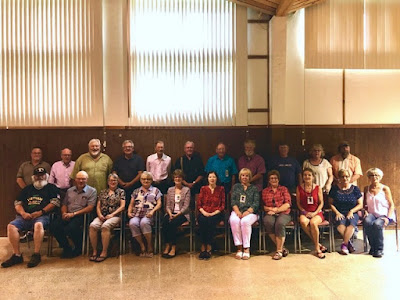Last week four women were found guilty of dropping off water for migrants in a remote area of the Arizona desert. Each of these women now faces a sentence of up to 6 months in federal prison. One of these women could have been my daughter, who carried out similar actions a few years ago.
My daughter and these women were volunteers with No More Deaths, a humanitarian organization founded in 2004 by Christian and Jewish leaders as a way to combat the growing number of migrants dying from dehydration in the Sonoran desert of Arizona.
Starting around 2000 the US began increasing the miles of walls along the US/Mexico border in urban areas, at points of entry, and in other places where it is easiest to cross. As those walls went up, migrants started going out further and further into remote areas of the Sonoran desert to try to make it into the US. Crossing in this area is extremely dangerous, especially in the summer. The walk can be up to 85 miles and the August heat (the volunteers were arrested in August 2017) averages 105 degrees. No one can possibly carry enough water to make that trek.
In the 1990’s about 14 bodies were found in that area of the desert, but since 2001, as more and more walls have been erected, the bodies found has averaged 167 per year. No More Deaths began to map the desert, noting where the most bodies were found, and then began to leave jugs of water and cans of beans in those places. They also established a medical tent for those found alive, but near death. This is all well known by Border Patrol, who often watch the tent to pick up migrants as soon as they leave. All that the volunteers are allowed to do is leave food and water and staff the medical tent. They are not allowed to share any other information, such as how far the migrants have left to travel to the nearest town, or even in what direction they should head.
One of the women convicted described her work as “sacred.” Another longtime volunteer stated: “This verdict challenges . . . people of conscience throughout the country. If giving water to someone dying of thirst is illegal, what humanity is left in the law of this country?”
It is both spiritual and good citizenship to obey the law, but what does one do when one is convinced, by conscience, that the law is immoral? Jesus constantly broke the law when he saw it hurting people. Luther uplifted the power of spiritual conscience in standing against rules and regulations he felt went against the will of God.
On this Martin Luther King, Jr. Day we are reminded that the essence of the Civil Rights Movement was to challenge laws viewed as immoral, often at the cost of going to jail. That was not Dr. King’s plan when he began his ministry in Montgomery, Alabama. He just wanted to build a highly successful, growing church. But God called him to something different, as I have written about extensively. [See posts to right: “MLK’s Call to be a Civil Rights Leader” and “MLK Faces Death Threats”] His civil disobedience actions would take him to jail 29 different times, and one of his most famous writings is entitled “Letter from a Birmingham Jail.”
One of our leaders I greatly admire is Rep. John Lewis. I have met him twice and heard him speak twice. [Post: “Meeting John Lewis”] He has been arrested 45 times, and at least 5 times since he has been a member of the US House of Representatives. He was also beaten badly in both Montgomery (Freedom Rides) and Selma (March to Montgomery.)
The spiritual journey includes a willingness to not only look at what we believe, but also what policies we support. And when we come to believe that a policy or law conflicts with our spiritual convictions, we are called to join a long line of spiritual leaders who have been willing to lay their own freedom (and sometimes their lives) on the line in order to lead us deeper into a life and world of justice and love.







